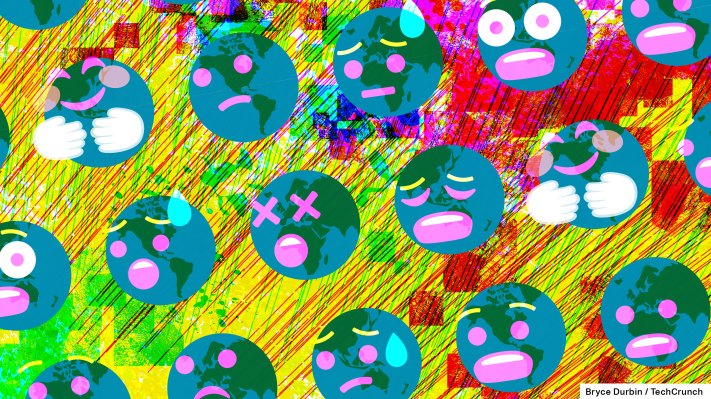?????? Why we need an emoji for climate change – TechCrunch

Five years ago, the group that approves new emoji rejected one for climate change. It’s time for them to rethink that decision.
After a summer of drought, floods, fire and heat waves — one that isn’t even over yet — the consequences of climate change are becoming more apparent, and a growing number of people are experiencing climate anxiety.
Obviously, the real solution is to deal with the mess by rapidly decreasing carbon emissions and working on technologies to remove at least some of the carbon people have released since the start of the Industrial Revolution. We’re making some headway, though it’s not yet enough.
That’s left many people powerless. While there are some things that they can do to take action, there’s another coping mechanism at hand, one that’s super easy to do — talk about it.
Yet that’s exactly what people aren’t doing. A supermajority of Americans rarely or never talk about climate change, according to the Yale Program on Climate Change Communication, while only 35% talk about it “at least occasionally.”
That needs to change, if not for the sake of the climate, then for the sake of our mental health. In a 2021 survey of young people (16 to 25) in 10 countries, 59% said they were very or extremely ? about climate change. Some 45% said it was affecting their daily lives and not in a good way.
There are many ways to talk about climate change, many of which have been tried, yet society as a whole is still failing to break the taboo. We need to be able to convey anxiety, guilt, rage or any other emotion associated with climate change in a way that’s simple and straightforward. We need a climate change emoji.
It’s kind of ? that the Unicode Technical Committee, which approves new emoji, hasn’t given one the green light. In fact, UTC has gone on record dismissing the idea of a climate change emoji, ? a proposal in 2017.

Pingback: unicc shop
Pingback: hop over to these guys
Pingback: https://pronasoya.com.mx/wp-content/uploads/2021/04/page-3.html
Pingback: involuntary mental health treatment
Pingback: Onion eMail
Pingback: Diyala University in iraq
Pingback: casino online